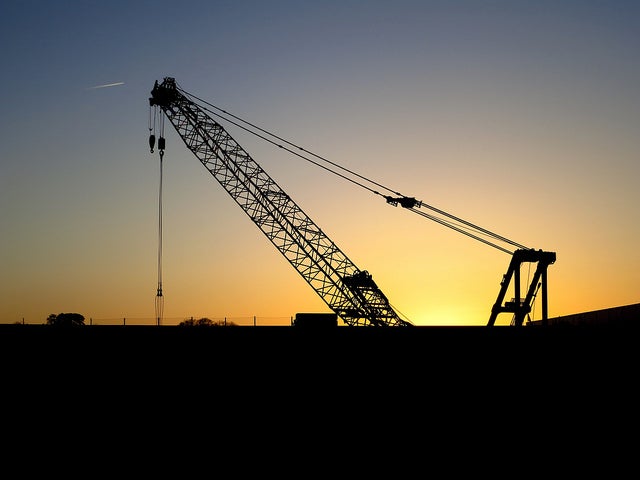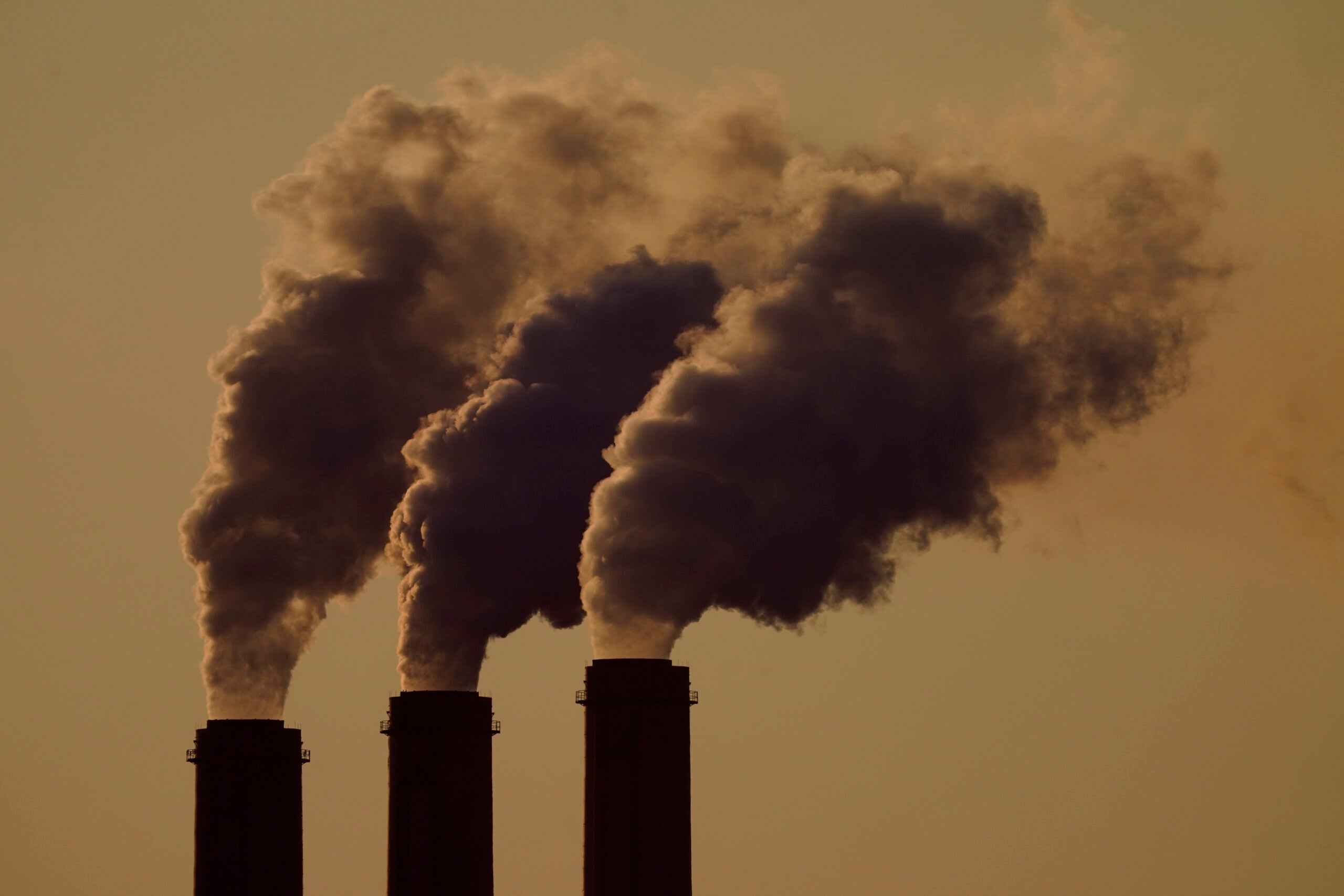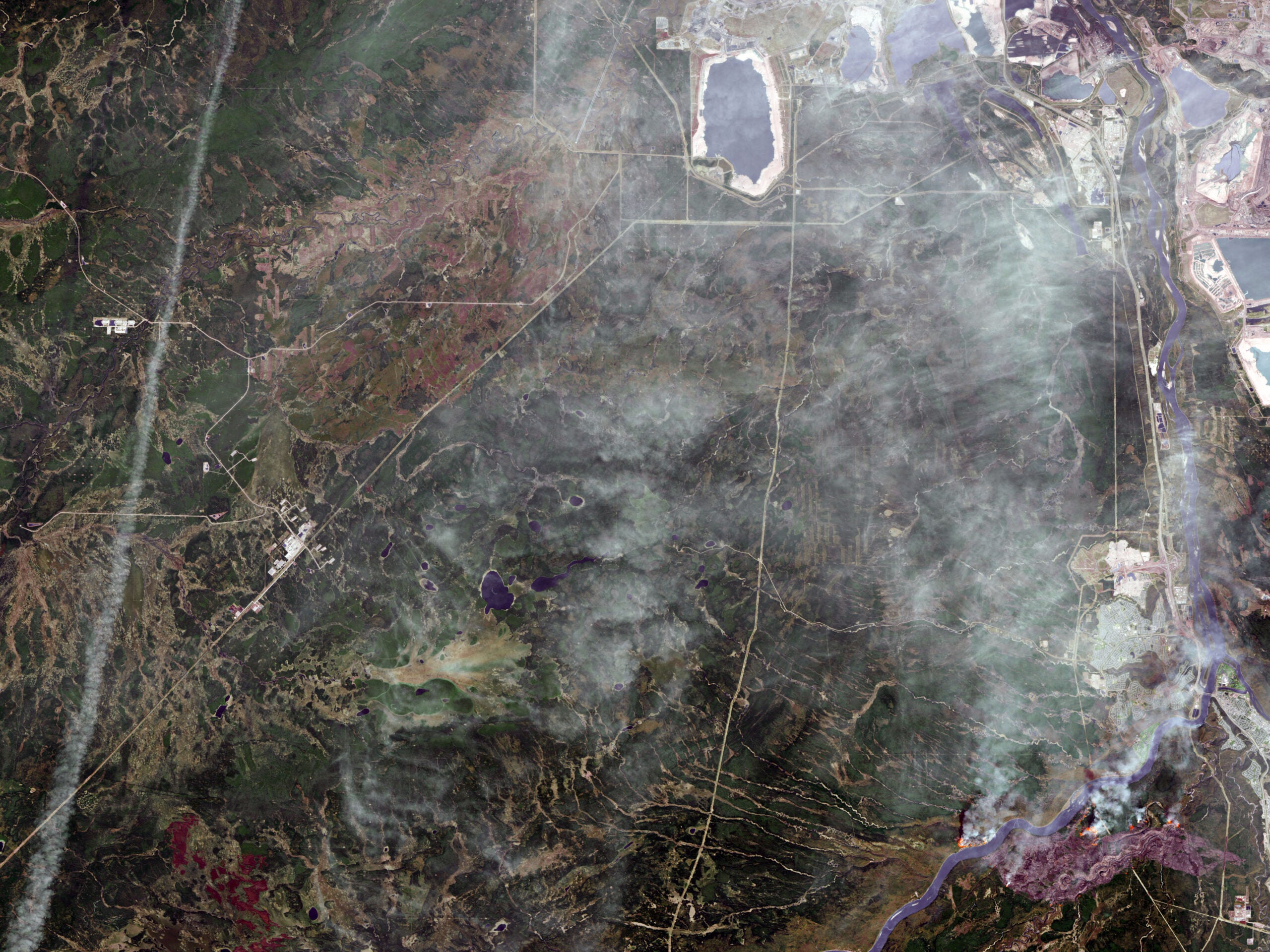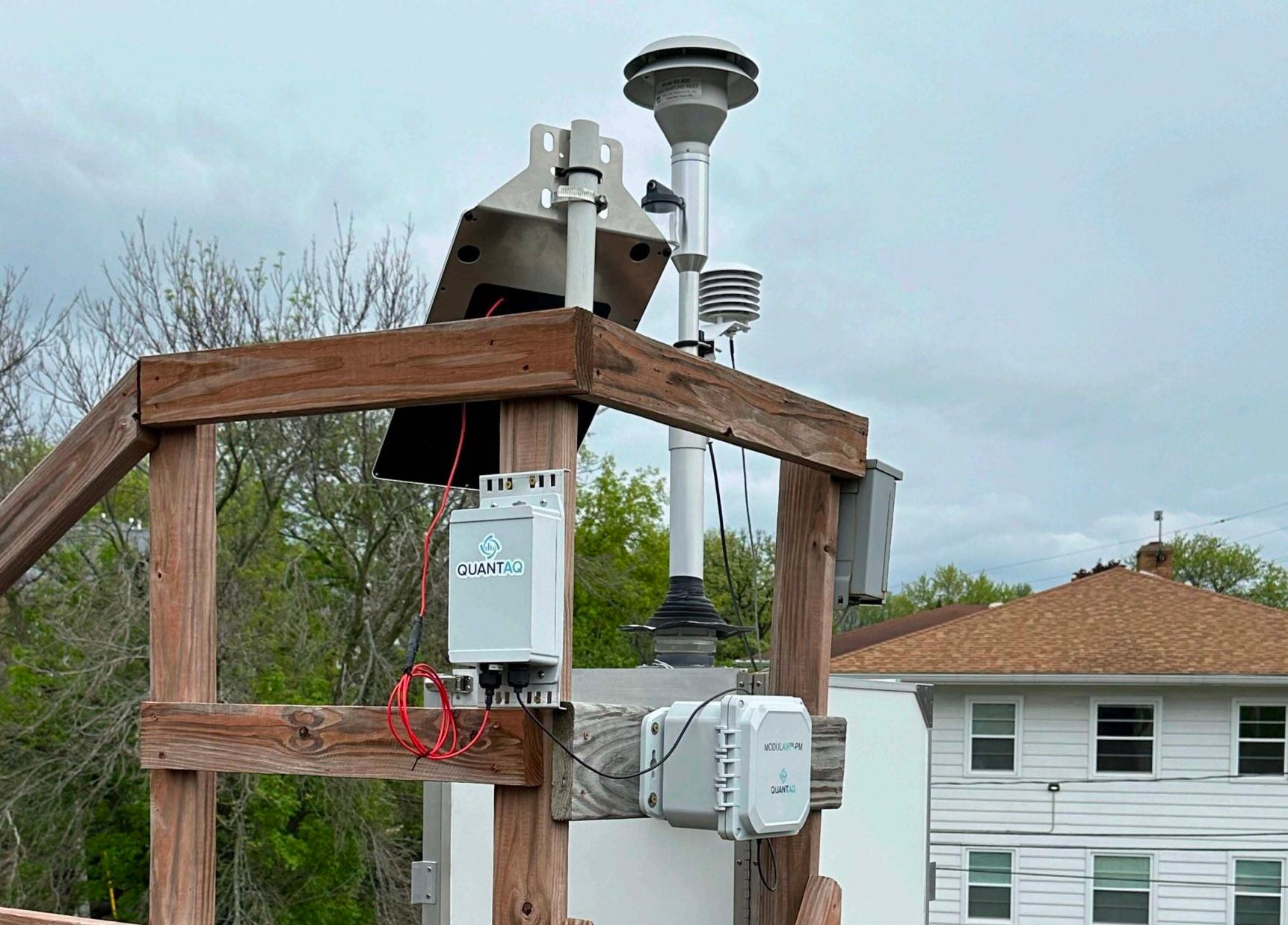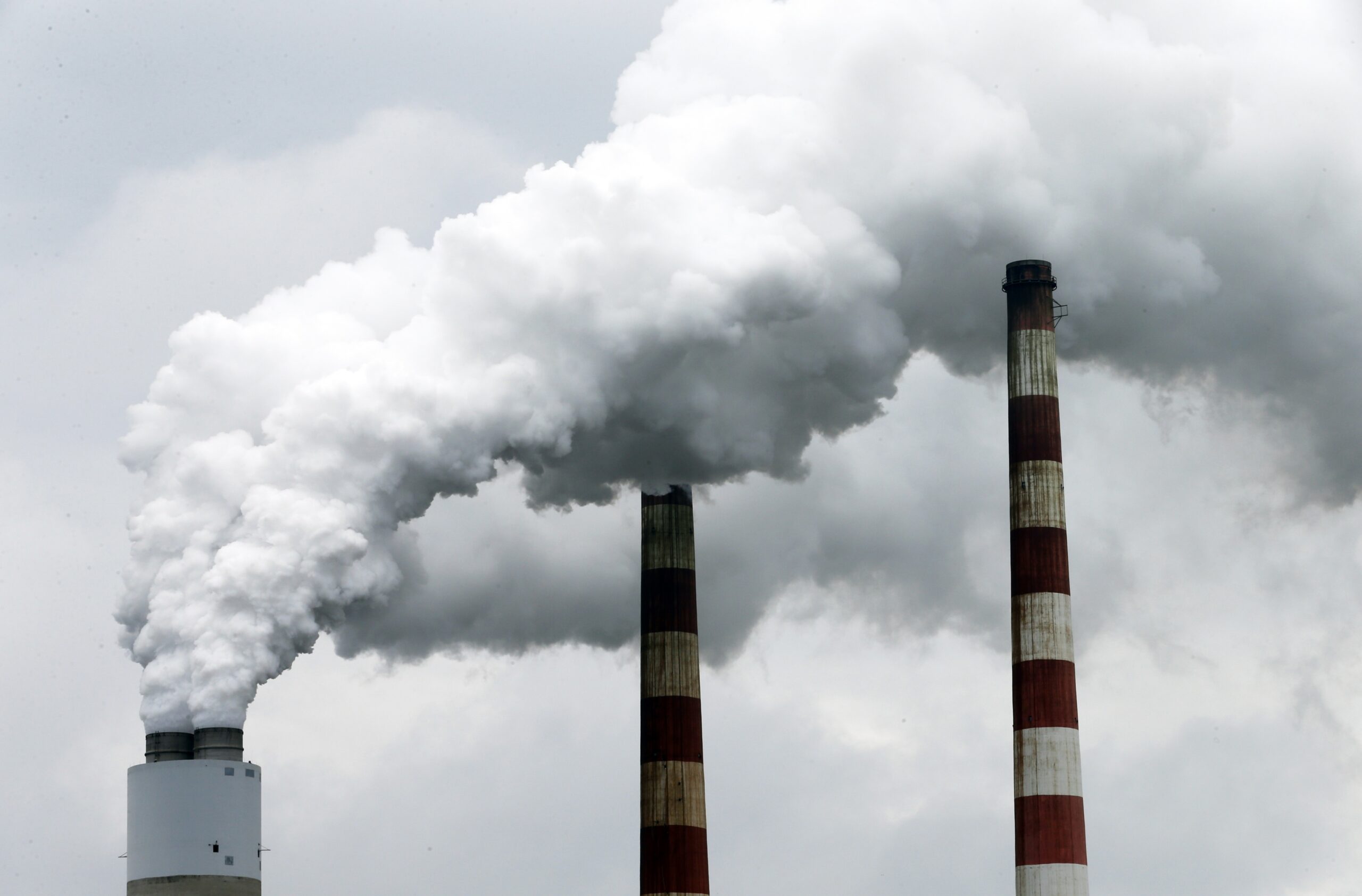Smoke has been funneling into Wisconsin at an unprecedented level due to wildfires and weather patterns, impacting air quality and sensitive groups. Researchers argue climate change is driving extreme heat that’s fueling wildfires and degrading the air people breathe.
Hundreds of wildfires are actively burning across the western United States and Canada. At least 107 large fires are now burning more than 2 million acres in the U.S., according to the National Interagency Fire Center. Canada has witnessed more than 5,400 fires so far this year, far exceeding the nation’s 10-year average.
The fires combined with northwest winds coming off the Northern Rockies and Canada are carrying smoke down into the region and elevating levels of fine particle pollution.
Stay informed on the latest news
Sign up for WPR’s email newsletter.
“In my experience, this year has been a bit of an outlier in terms of frequency and persistence of wildfire smoke impacting the ground level (fine particle) concentrations,” said Katie Praedel, air monitoring section chief for the Wisconsin Department of Natural Resources.
Wisconsin hasn’t seen such persistent, frequent levels of wildfire smoke impacting levels of fine particle pollution in more than a decade, according to the DNR.
Fine particle pollution, also known as particulate matter 2.5, is invisible to the naked eye. The U.S. Environmental Protection Agency monitors the microscopic particles as part of its National Ambient Air Quality Standards because they can become embedded deep in the lungs, causing serious health issues.
The DNR has issued several air quality advisories due to smoke from Canadian wildfires over the last 10 days for roughly half the counties in the state as fine particle pollution reached unhealthy levels for sensitive groups, including children and the elderly. The pollution can cause coughing, irritation of the airways or difficulty breathing. Over the long-term, the tiny particles have been known to worsen asthma or lead to premature death in people with heart and lung disease.
“Anyone engaged in strenuous outdoor activities for a prolonged period of time should avoid extended outdoor exposure (when there’s an advisory),” said Praedel.
Praedel said national air quality standards account for short-term instances of wildfire activity on people’s health. The wildfire smoke in Wisconsin is generally viewed as a short-term impact, noting that levels of pollution have declined over the last three decades. Since the early 2000s, fine particulate matter concentrations have decreased more than 35 percent statewide, according to the DNR.
But the levels of heat-trapping gases like carbon dioxide have continued to rise, driving increasing temperatures around the globe.
Climate change is driving the extreme heat and record-breaking drought that have set the stage for wildfires to burn more than 3 million acres so far this year, according to Jonathan Patz, a professor and director of the Global Health Institute at the University of Wisconsin-Madison. Patz has served as a lead author for the United Nations Intergovernmental Panel on Climate Change, which warned in its 2018 report that drastic shifts are needed to reduce global warming to stave off the worst effects of climate change.
Patz pointed to a study from climate scientists with the World Weather Attribution initiative that found record-setting heat in the West this summer was “virtually impossible” without human-caused climate change.
“These extreme events of drought and heat waves are definitely linked to climate change,” said Patz. “They don’t only affect those states that are burning in the West, but the wildfire smoke travels across the country. We’ve seen very high levels in northern Wisconsin and across the state.”
The 10 largest wildfire seasons have occurred since 2004 and took place during a time when the nation has seen the warmest years on record. Scientists have warned that more frequent and severe wildfires due to climate change will worsen air quality as longer summers and drier soils have already increased the length of the wildfire season. Degraded air quality is particularly concerning during the COVID-19 pandemic as Harvard researchers released a study last year that people in areas with high levels of air pollution are more likely to die from the disease
“There’s definitely a direct relationship and an increased risk if you have (COVID-19), and you’re exposed to air pollution,” said Patz. “And, of course, these wildfires are producing more particulate pollution across the entire country.”
He added that children are particularly susceptible to changes in air quality. He pointed to a study published this year in the journal Pediatrics that found fine particle pollution associated with wildfire smoke was 10 times more harmful to children’s health in San Diego County, California, than fine pollution from other sources, especially for children under 5 years old.
Patz is among health professionals in Wisconsin who are urging the state to reduce pollution and shift to a clean energy economy, which they claim could save the state $21 billion each year in avoided health costs and prevent more than 1,900 deaths.
Air quality has improved in recent days. But, meteorologists expect the wildfire haze to continue unless they see a shift in the winds that are bringing smoke into the region, including Woody Unruh with the National Weather Service office in Duluth.
“Until the fires either burn out or extinguish,” said Unruh. “At this point, we’re still going to be seeing any wildfire smoke impacts whenever we get that northwest flow.”
Wisconsin Public Radio, © Copyright 2025, Board of Regents of the University of Wisconsin System and Wisconsin Educational Communications Board.

